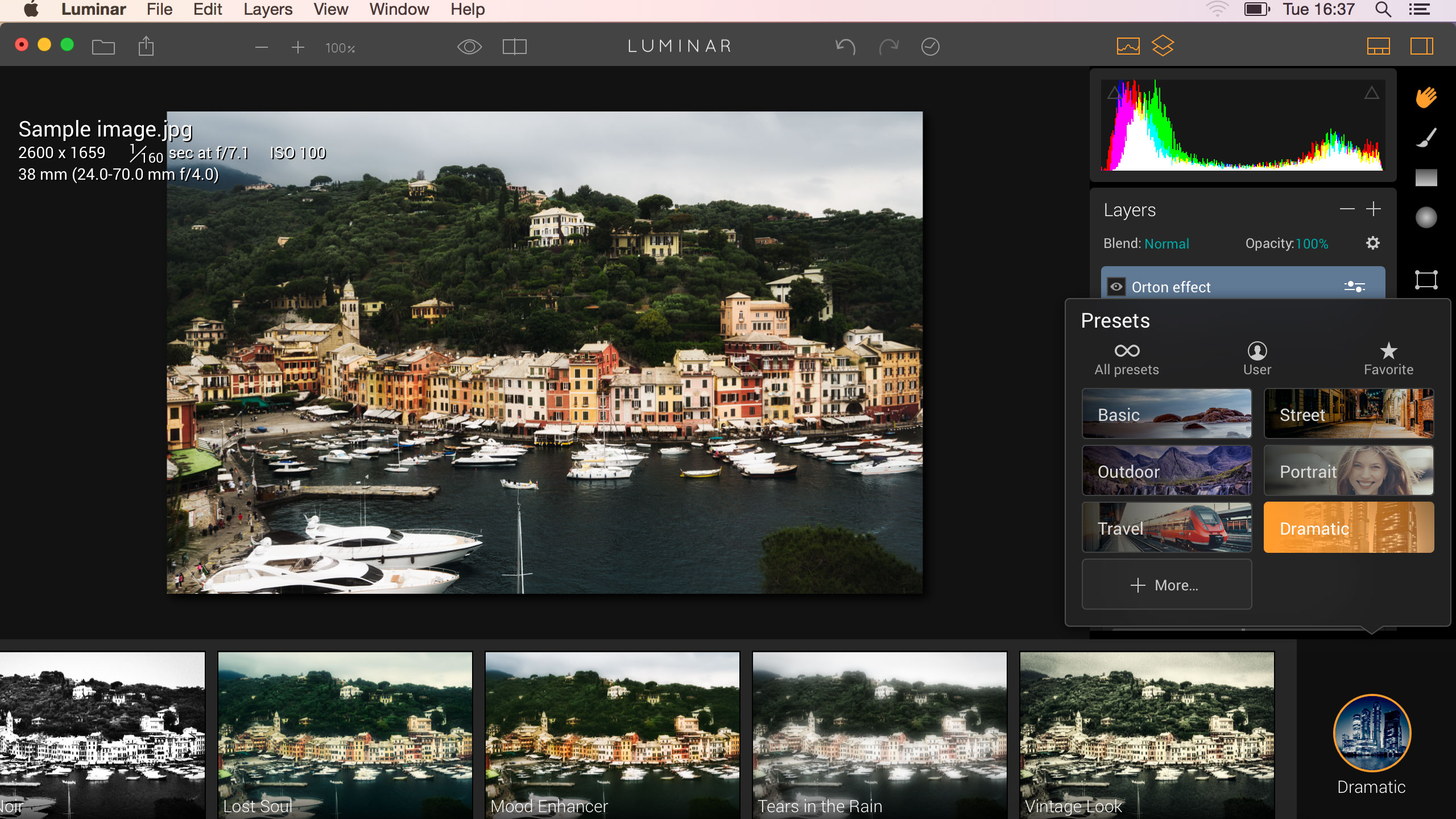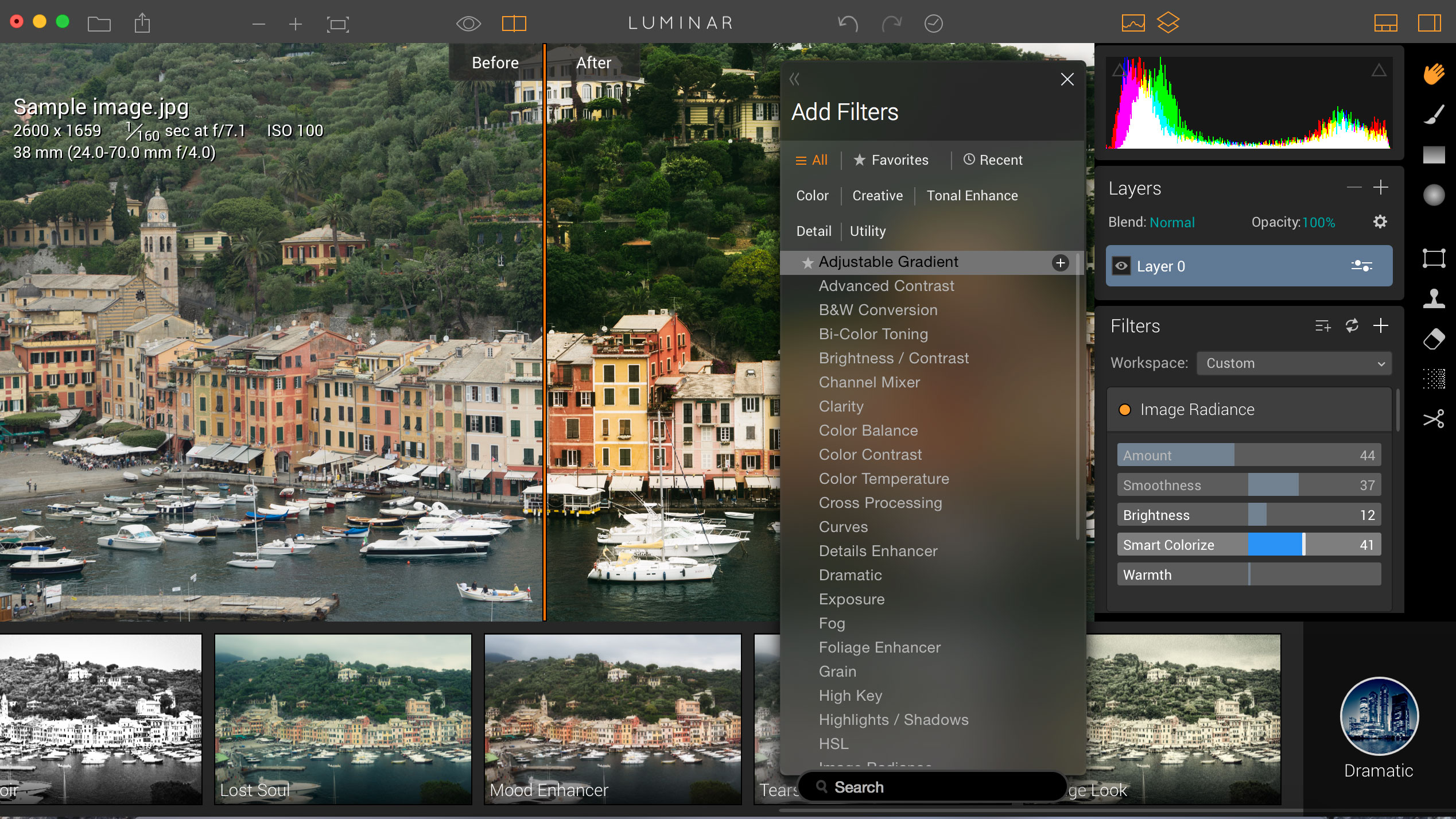MacPhun Luminar is, according to its maker, a fully-functioning photo-editing tool. It’ll work as a standalone program or as a plug-in and follows a now-familiar format – a large selection of preset ‘one-click’ effects backed up by manual filter adjustment settings, so you can modify the existing presets or add your own.
Luminar will come with more than 50 preset effects, and these are built from over 35 different filters. While you’re still learning, you can use the existing presets and maybe make some minor tweaks to the individual filters they use. Later on, you can start experimenting with your own filter effects and combinations and creating your own presets.
Luminar will come with over 35 filters such as Tone & Exposure, Bi-Color, Photo Filter Emulation, Cross-Processing, Detail Enhancement and more, and these can be combined using layers, masks and blend modes to create any number of different effects.
It doesn’t stop there. Luminar also offers ‘workspaces’ for different photographic genres like portrait photography, landscapes, street photography and black and white. You’ll be able to create your own workspaces and even share them with other photographers. MacPhun wants the software to cater for all user levels, from novice to expert.
Luminar will work with directly with raw files and its masking tools will include an adjustable adjustment brush, radial and gradient masks. Its adjustments are non-destructive, so you can go back and change them at any time – it will also have a History feature.
We tried a beta version, which is every bit as easy to use as MacPhun says – in fact, it’s very reminiscent of the company’s existing Creative Kit apps like Intensify and Tonality.

Luminar is simple on the surface, with preset effects selected by category and then via a filmstrip along the bottom of the screen, but over on the right side of the interface is a set of very sophisticated manual editing tools. You can add and stack filter effects via layers, each of which can be masked with a brush, gradient or radial gradient tool. You can also adjust the layer opacity and blending mode, so it has a lot in common with Photoshop.

As well as adding image filters, though, you can also add other photos as layers, so it’s possible to produce composite images too – not with the same finesse you can in Photoshop, maybe, but very quickly and simply.
The preset effects look to be aimed mostly at image enhancement rather than wild or graphic effects (MacPhun’s FX Photo Studio is what you need here!), but you can create and save your own presets and no doubt MacPhun will be providing plenty in future too.
MacPhun Luminar launches on November 17th, but is available for pre-order from November 2nd at a special introductory price of £44/$ 59/AU$ 84 (or £39/$ 49/AU$ 69 if you already own a MacPhun photo-editing program). The pre-order offer includes bonus pack of training videos and a course on building a photography business from UK wildlife photographer Will Burrard-Lucas.